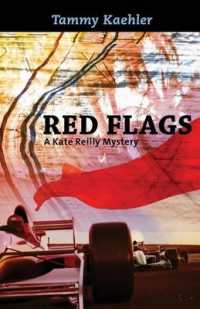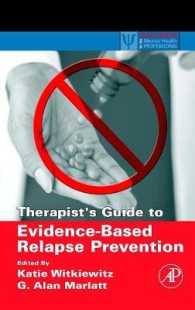- ホーム
- > 洋書
- > 英文書
- > Literary Criticism
基本説明
Presents bold new readings of Brecht, Kafka, Fassbinder, Wenders and others to reveal a city as ambivalent as it is fascinating.
Full Description
Berlin has been the focal scene of some of the most dramatic and formative events of the twentieth century. Through periods of decadence, fascism, war, partition and reunification, it has seen both extraordinary constraint and creativity. Andrew Webber explores the cultural topography of Berlin and considers the city as key capital of the twentieth century, reflecting its history, its traumas and its achievements. He shows how its spaces and buildings participate in the drama by analysing how they are represented in literature and film. Taking his methodology from Walter Benjamin, Webber presents bold readings of works synonymous with Berlin, with authors from Bertolt Brecht and Franz Kafka to Christa Wolf, and directors from Walther Ruttmann to Rainer Werner Fassbinder and Wim Wenders. Across this range of material, twentieth-century Berlin is seen to be as ambivalent as it is fascinating.
Contents
Foreword: Berlin is worth a journey; Introduction: capital of the twentieth century?; 1. Berlin chronicle: thresholds and boundaries; 2. Berlin ensemble: inhabitations and accommodations; 3. Berlin symphonies: movements and stills; 4. Berlin Alexanderplatz: alterations and reconstructions; 5. Berlin Wall: divisions and falls; 6. Berlin marathon: openings and closures; Afterword: Goodbye to Berlin?; Bibliography.








